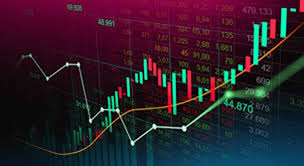
Forex Trading: Is it Halal or Haram?
In the world of finance, forex trading has gained significant popularity among investors and traders alike. However, for many Muslims, the question remains: is forex trading halal or haram? To properly address this question, it is crucial to delve into the principles of Shariah law, Islamic finance, and how they relate to modern financial practices like forex trading. Some believe that engaging in forex trading can potentially be permissible under certain conditions. Others argue that it contradicts Islamic teachings due to its speculative nature and the potential for riba (usury). In this article, we aim to explore these different viewpoints, considering both the Islamic perspective and the realities of forex trading. For more insights, you can visit forex trading halal or haram https://trading-terminal.com/.
Understanding Forex Trading
Forex, or foreign exchange trading, involves the buying and selling of currency pairs in the global market. Traders speculate on the price movements of currencies to make profits, often using leverage to amplify their positions. The forex market operates 24 hours a day, five days a week, providing ample opportunities for traders to engage in transactions. Due to its decentralized nature, the forex market is one of the largest financial markets globally, with a daily trading volume exceeding $6 trillion.
Islamic Finance Principles
Islamic finance operates under strict guidelines derived from the Quran and Hadith, emphasizing ethical investing and the prohibition of certain financial practices. Key principles include:
- Riba (Usury): Any form of interest is deemed haram. This includes earning interest on loans or deposits.
- Gharar (Uncertainty): Excessive speculation or uncertainty in transactions is not permissible.
- Investing in Haram Industries: Investments in industries such as alcohol, gambling, and pork are prohibited.
The Debate: Is Forex Trading Halal?
The halal or haram status of forex trading comes down to the specifics of how trading is conducted and the nature of the profits made. Here are a few key considerations trading through an Islamic lens:
1. Type of Transactions
If forex trading involves a swap (rollover interest), it is generally considered haram. Many forex brokers offer swap-free accounts, which avoid interest accumulation and are designed for Muslim traders. If traders can engage in forex transactions that do not accrue interest, some scholars argue that it could be considered halal.

2. Speculation vs. Investment
Forex trading is often seen as speculative, which raises concerns regarding gharar. Traders must consider their approach; if they are merely speculating without any substantial research or strategy, this could align more with gambling, which is haram. Conversely, traders who adopt a more analytical approach, treating forex trading as an investment, might find their activities more acceptable under Islamic laws.
3. Risk Management
Effective risk management is essential in trading. Some scholars argue that forex trading can be halal if conducted responsibly, with careful consideration of risk and profit. However, reckless trading behavior that leads to extreme losses could be deemed irresponsible and haram.
Perspectives from Scholars
The opinions regarding whether forex trading is halal or haram vary among scholars. Some emphasize the necessity to avoid riba and gharar, labeling forex trading as haram due to its speculative nature. Others argue in favor of the potential for halal trading through proper practices, such as using halal accounts, avoiding interest, and conducting informed trading strategies.
Conclusion
Determining whether forex trading is halal or haram ultimately comes down to the methodologies employed by the trader. It is crucial for Muslim traders to seek knowledge and guidance, perhaps consulting with knowledgeable scholars in Islamic finance. Using swap-free accounts and adopting cautious strategies can help in aligning forex trading with Islamic principles. As the financial markets evolve, so too should the interpretations of Islamic finance, allowing for discussions that incorporate new trading practices while adhering to core ethical standards.
Ultimately, engaging in forex trading comes with both risks and rewards. The decision to participate should be well-informed, ethical, and reflective of Islamic values, ensuring that one’s financial practices align with their faith.
